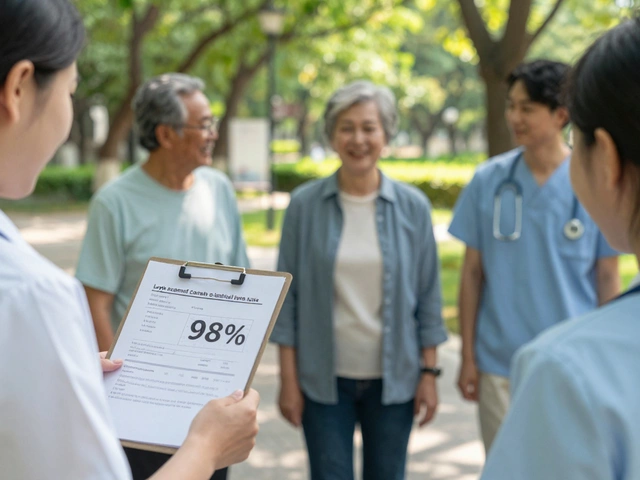Cancer Remission: What It Means and How to Improve Your Chances
When you hear the word “remission,” you probably picture a cancer that’s shrinking or disappearing. It’s not a cure, but it’s a solid win that many patients reach with the right mix of treatment, diet, and mindset. Below you’ll find the most useful info to help you understand remission, what influences it, and what you can start doing right now.
Key Factors That Influence Remission
First off, the type of cancer matters a lot. Some cancers, like certain blood cancers, go into remission more often than aggressive solid tumors such as pancreatic or glioblastoma. That’s why doctors talk about “curable” vs. “hard‑to‑cure” cancers.
Second, how early the disease is caught changes the odds dramatically. Early‑stage detection means smaller tumor load, which usually translates to better response to surgery, radiation, or chemo. If you’ve read our post on “Most Painful Cancer Treatments,” you already know why early treatment can spare you from intense side effects.
Third, the treatment plan itself is crucial. Targeted therapies, immunotherapy, and combination chemo have boosted remission rates over the past decade. In India, many patients also turn to complementary approaches like Ayurvedic massage (see our article on “Ayurvedic Massage Explained”) to manage stress, which indirectly supports the body’s healing mechanisms.
Lastly, personal health habits play a big role. Smoking, heavy alcohol use, and a high‑sugar diet can undermine even the best medical regimen. Conversely, regular exercise, adequate sleep, and a balanced diet rich in antioxidants can improve how your body reacts to treatment.
Practical Steps You Can Take Today
1. Know Your Numbers. Keep a log of blood tests, imaging results, and any side effects. Seeing trends helps you and your doctor spot early signs of relapse or progress.
2. Ask About Clinical Trials. New drugs are constantly entering the market. If standard therapy isn’t enough, a trial might offer a better chance at remission.
3. Manage Stress. Stress hormones can interfere with immune function. Simple practices like deep breathing, short walks, or a weekly Ayurvedic oil massage can keep stress in check.
4. Eat Smart. Focus on whole foods—vegetables, lean protein, and healthy fats. Limit processed sugars and red meat. A study from 2023 showed that patients who ate a Mediterranean‑style diet had a 15% higher remission rate for certain cancers.
5. Stay Active. Even light activity, like a 20‑minute stroll, boosts circulation and can improve chemotherapy tolerance. If you’re recovering from surgery, follow our “How Many Days of Rest After Knee Replacement” tips for safe movement.
6. Keep Communication Open. Talk to your oncologist about any new symptoms, no matter how small. Early reporting can catch a relapse before it spreads.
Remission isn’t a one‑size‑fits‑all outcome, but knowing the factors that influence it and taking proactive steps can tilt the odds in your favor. Keep learning, stay involved in your care, and use resources like our tag page to explore related topics—whether it’s the pain side of treatment, diet advice, or emotional support. Your journey is personal, but you don’t have to walk it alone.

Can Stage 4 Cancer Go Into Remission? Understanding Your Options
Exploring whether stage 4 cancer can go into remission involves understanding a mix of medical treatments, patient perseverance, and the body's unique response. While challenging, remission is not entirely out of reach, thanks to advances in medical science. This article dives into what's possible, sharing real treatments, breakthroughs, and supportive measures. Discover the tools and tips that might just tip the odds in your favor.

What is the Hardest Part of IVF?
Mar, 23 2025



